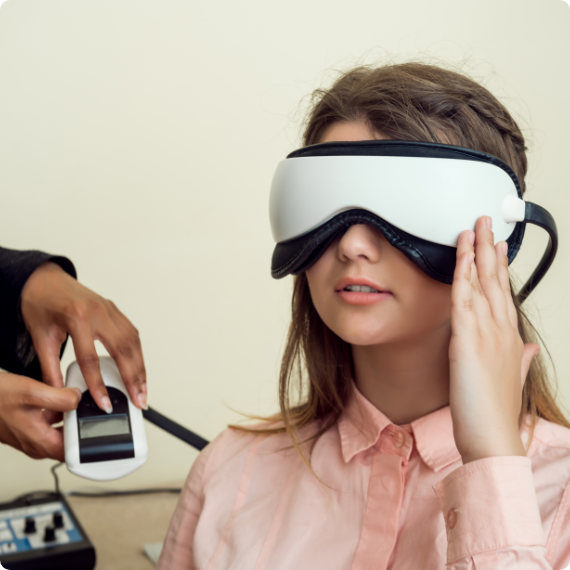
Concussion & TBI Testing
We provide a unique TBI protocol that will objectively identify if there was traumatic brain injury from a recent accident.
The main function is our leading diagnostic test which will help determine the nature of impairment and corresponding treatment needed to optimize recovery.
Concussion & TBI Explained
Concussion
A concussion is a type of traumatic brain injury—or TBI—caused by a bump, blow, or jolt to the head or by a hit to the body that causes the head and brain to move rapidly back and forth. This sudden movement can cause the brain to bounce around or twist in the skull, creating chemical changes in the brain and sometimes stretching and damaging brain cells.
TBI
Traumatic brain injury (TBI) is a nondegenerative, noncongenital insult to the brain from an external mechanical force, possibly leading to permanent or temporary impairment of cognitive, physical, and psychosocial functions, with an associated diminished or altered state of consciousness. Concussions are the most common TBI (Traumatic Brain Injury).

Associated Symptoms
The signs and symptoms of a concussion can be subtle and may not show up immediately. Symptoms can last for days, weeks or much longer.
Physical signs and symptoms of a concussion may include:
- Headache
- Ringing in the ears
- Nausea
- Vomiting
- Fatigue or drowsiness
- Blurry vision
Other signs and symptoms of a concussion include:
- Confusion or feeling as if in a fog
- Amnesia surrounding the traumatic event
- Dizziness or “seeing stars”
A witness may observe these signs and symptoms in the concussed person:
- Slurred speech
- Delayed response to questions
- Dazed appearance
- Forgetfulness, such as repeatedly asking the same question
You may have some symptoms of concussions immediately, and some can occur for days after the injury, such as:
Symptoms in children
Head trauma is very common in young children. But concussions can be difficult to recognize in infants and toddlers because they can’t describe how they feel. Concussion clues may include:



